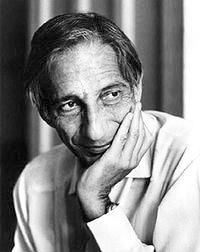Illich, Ivan (Energy)
Illich, Ivan
Ivan Illich (Vienna, 1926-Bremen, 2002), theologian, philosopher, and historian, pointed out the destructive power of modern institutions that "create needs faster than they can create satisfaction, and in the process of trying to meet the needs they generate, they consume the earth." The correct response, for Illich, was a more disciplined and limited use of science and the invention of alternative, low-scale, technologies. In his seminal book Energy and Equity (1973) Illich deals with the so-called "energy crisis" and the contradiction implicit in the joint pursuit of equity and industrial growth. Exploring the question of whether or not humans need more energy than is their natural birthright, he gives a startling analysis of the marginal disutility of tools. After a certain point, that is, more energy gives negative returns. Instead, a low-energy policy still allows for a wide choice of life-styles and cultures. If a society opts for high-energy consumption patterns, its social relations must be dictated by technocracy and will be equally degrading whether labeled capitalist or socialist. According to Illich, equity and energy can grow concurrently only to a point. Below a threshold of per capita power, technology improves the conditions for social progress. Above this threshold, energy expenditures grow at the expense of equity. Illich stated: "Calories are both biologically and socially healthy only as long as they stay within the narrow range that separates enough from too much."
Further Reading
- Illich, Ivan, 1973. Energy and Equity. Marion Boyars Publishers, 96 pp. ISBN: 0714510580
- National-Louis University. Ivan Illich.
